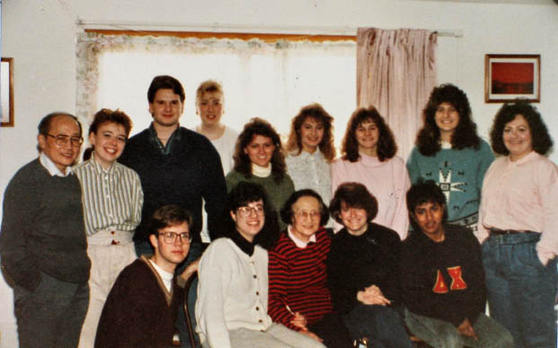On the 35th Anniversary of China-U.S. Diplomatic Relations
By ZHANG YAN
The year 2014 marks the 35th anniversary of the establishment of diplomatic relations between China and the U.S. Its significance, from a global perspective, goes without saying. The past 35 years have witnessed enormous changes, both in China-U.S. ties and globally. I was appointed the first resident People’s Daily correspondent in the U.S. in 1979. Commenting on international issues is not my field of expertise. I would, however, like to discuss my feelings in this regard, based on my experiences in the U.S.
Closer ties with the States were established shortly after I began working there. I interviewed a good number of Americans, gave lectures in universities and spent a lot of time with everyday people. This gave me a deep understanding of the country and its people, and made me realize that China and the U.S. had much to learn from one another.
American people impressed me with their kindness and sincerity. When I first arrived, I would always carry a map in case I got lost. But whenever I unfolded it on the street to find my way, someone would approach me and ask, “Do you need any help?” That person could be anyone from an elderly lady to a young student.
My son, who was studying in the U.S., once drove me to visit a friend. On our way we asked a woman passer-by for directions. When we told her where we were headed she immediately got into her car, motioning us to follow her. After driving a few blocks, she signaled to let us know we had arrived at our destination. Unfortunately she drove off before we had the chance to ask her name. She seemed to me like Lei Feng, the Chinese role model who wholeheartedly served the people. She may never have heard of Lei Feng, and how he would often do good works without telling anyone his name. The help she gave us was purely a matter of instinct!
|
 |
| The author and his wife with students of the University of Pittsburgh. |
My wife and I lived in Johnstown, Pennsylvania, for nearly two years, having been invited to give lectures on the Johnstown Campus of the University of Pittsburgh. As neither of us drove, we would go shopping on foot. On our first trip to buy provisions we asked a woman we met on the street how to get to the nearest supermarket. Instead of answering, she told us to get into her car. She then drove us to the supermarket, which was some distance away. To our surprise, when we walked out she was there waiting to drive us back home. My wife and I were deeply touched. The three of us became good friends and would often visit one another. She was fascinated with China and its people, and we would often tell her stories about our home and the country in general. Later that year, she invited us to celebrate Christmas in a nearby church. During his sermon the priest mentioned a number of local Christians, commending them for their good deeds. Our friend was among them, and received warm applause for her voluntary help to others. Her response was to murmur, “It is God’s will.”
The town where we lived had a population of a few hundred thousand, many of whom were impoverished. Relief organizations provided shelter for the homeless and gave sanctuary to victims of domestic violence, among other services. Although there were many social problems, people were generally willing to do what they could to resolve them. But good deeds also require cash, and my wife and I were curious about sources of funding for these good works. We later learnt that well-off citizens and profitable enterprises in the U.S. often made donations to national charitable foundations. The less fortunate, upon providing verification of their financial distress, could apply to them for subsidies. In a society where there is a broad divide between rich and poor, this is one way of resolving social conflicts.
